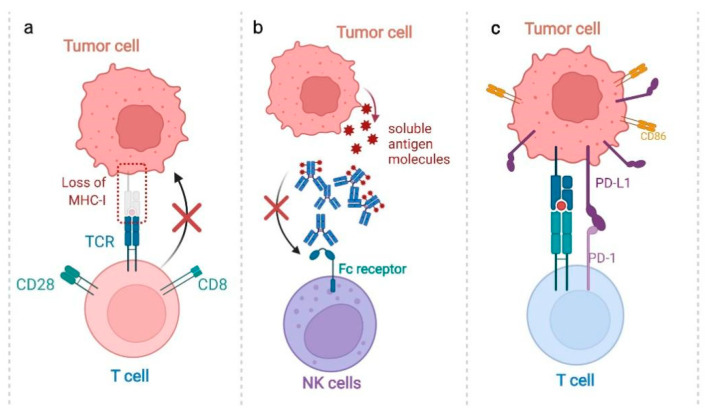Figure 1.
The mechanisms underlying tumor immune escape. (a) Low immunogenicity: Cancer cells can escape immune surveillance through downregulating the tumor-specific antigen. Cancer cells with strong immunogenicity induce effective antitumor immune responses and are easily eliminated, while cells with negative antigen and downregulated MHC-I/II expression can escape from the immune system. (b) Inhibited ADCC: Cancer cells could also release antigen molecules, which form complexes with antitumor antibodies. Free antibodies could bind to Fc receptors through the Fc segment of the antibody, and then mediate antibody-dependent cellular cytotoxicity (ADCC). However, the depletion of antitumor antibodies by soluble antigen molecules and the blocking of Fc receptors inhibits ADCC and promote tumor immune escape. (c) Overexpressed immune checkpoint: Cancer cells are capable of escaping from the immune surveillance by overexpressing B7 family molecules (such as CD86 or PD-L1), which suppress antitumor T-cell responses by binding to the PD-1 receptor.

